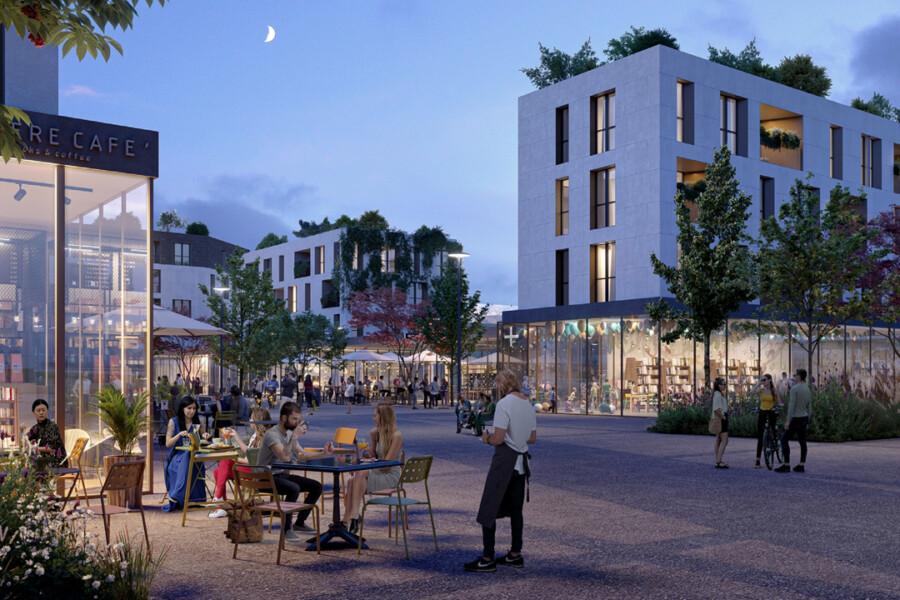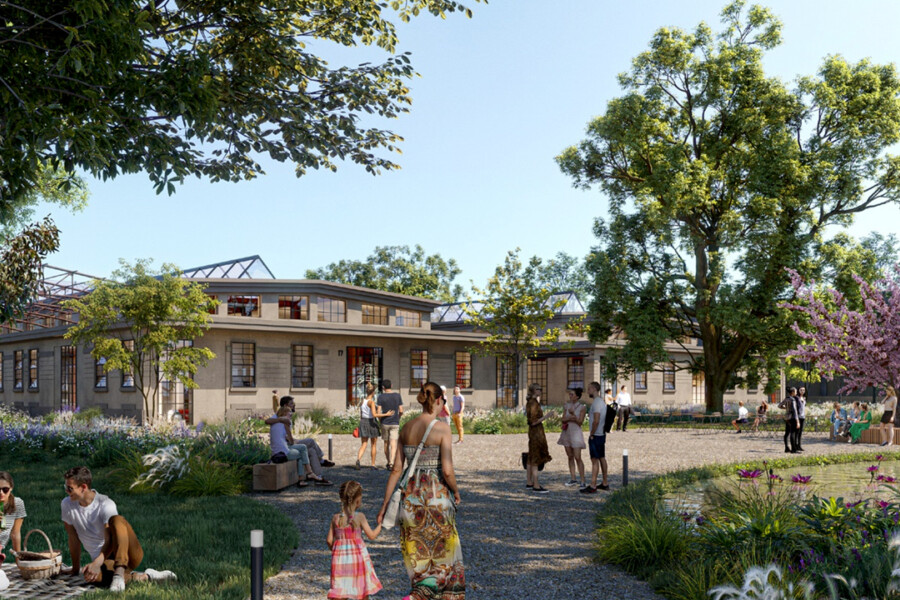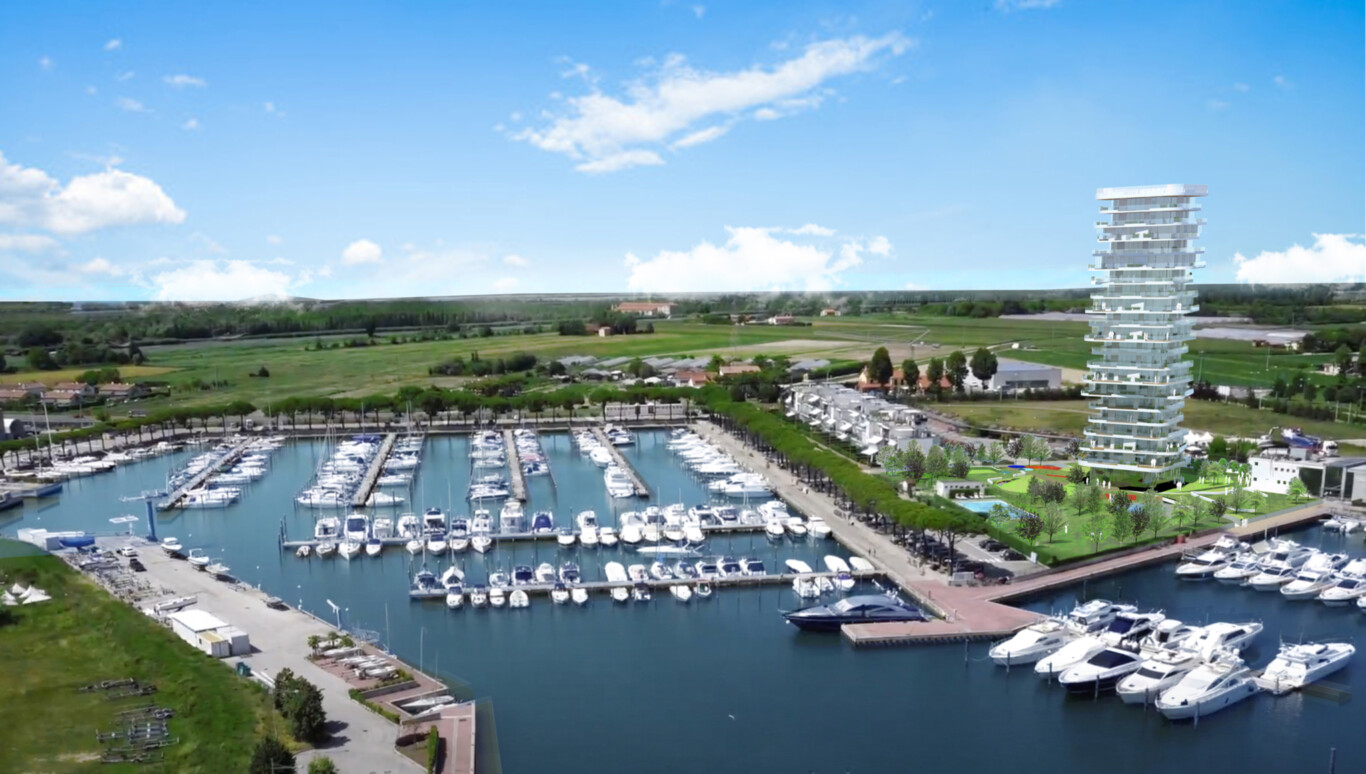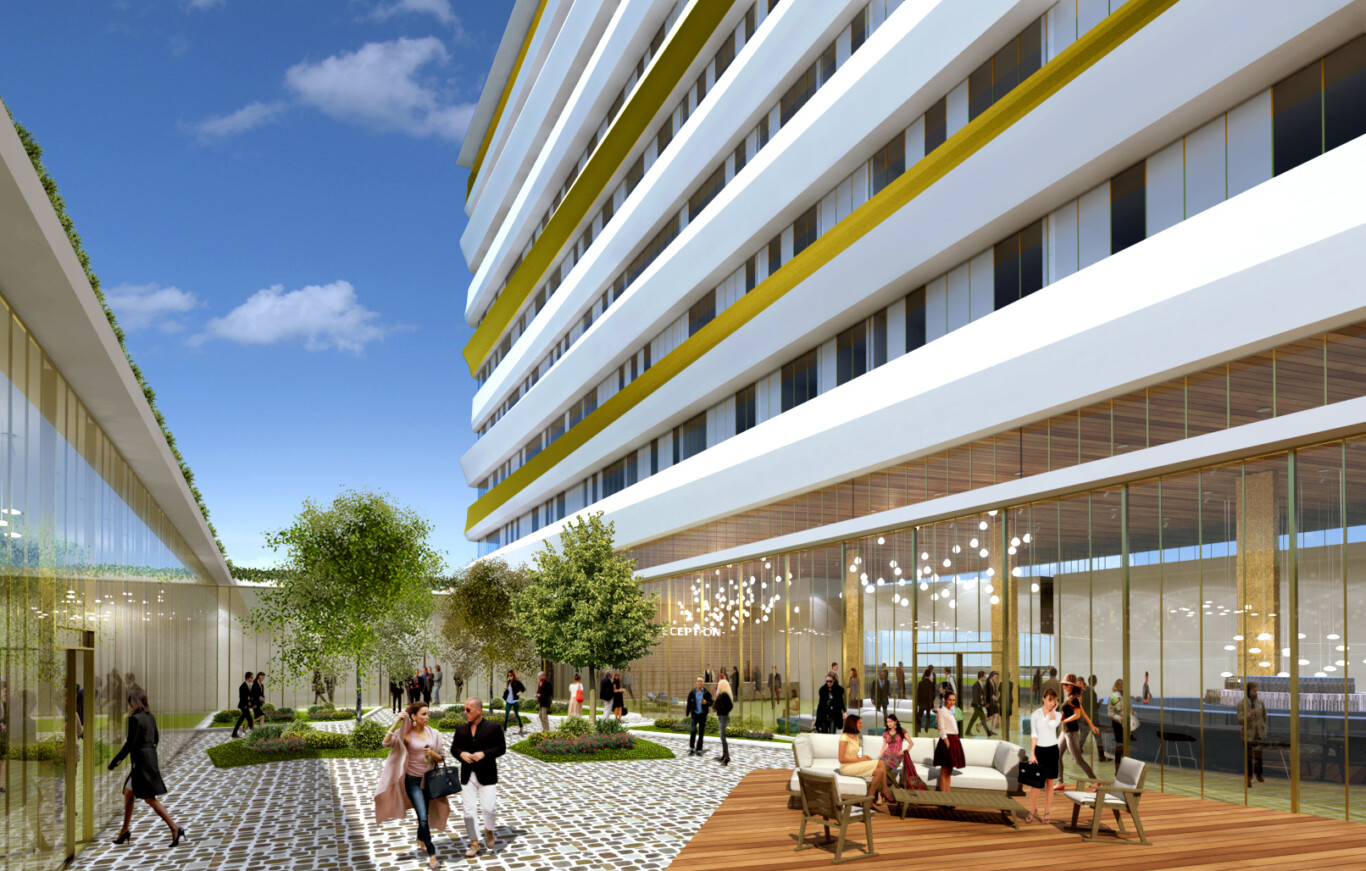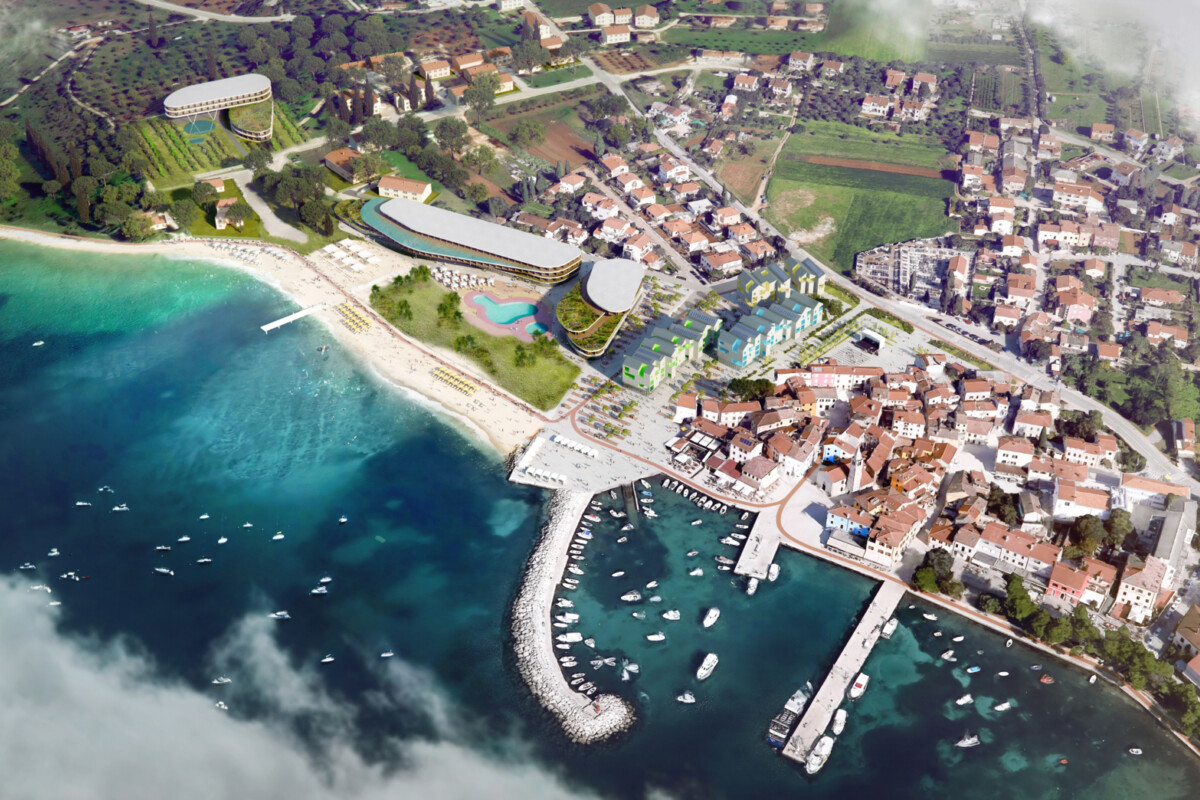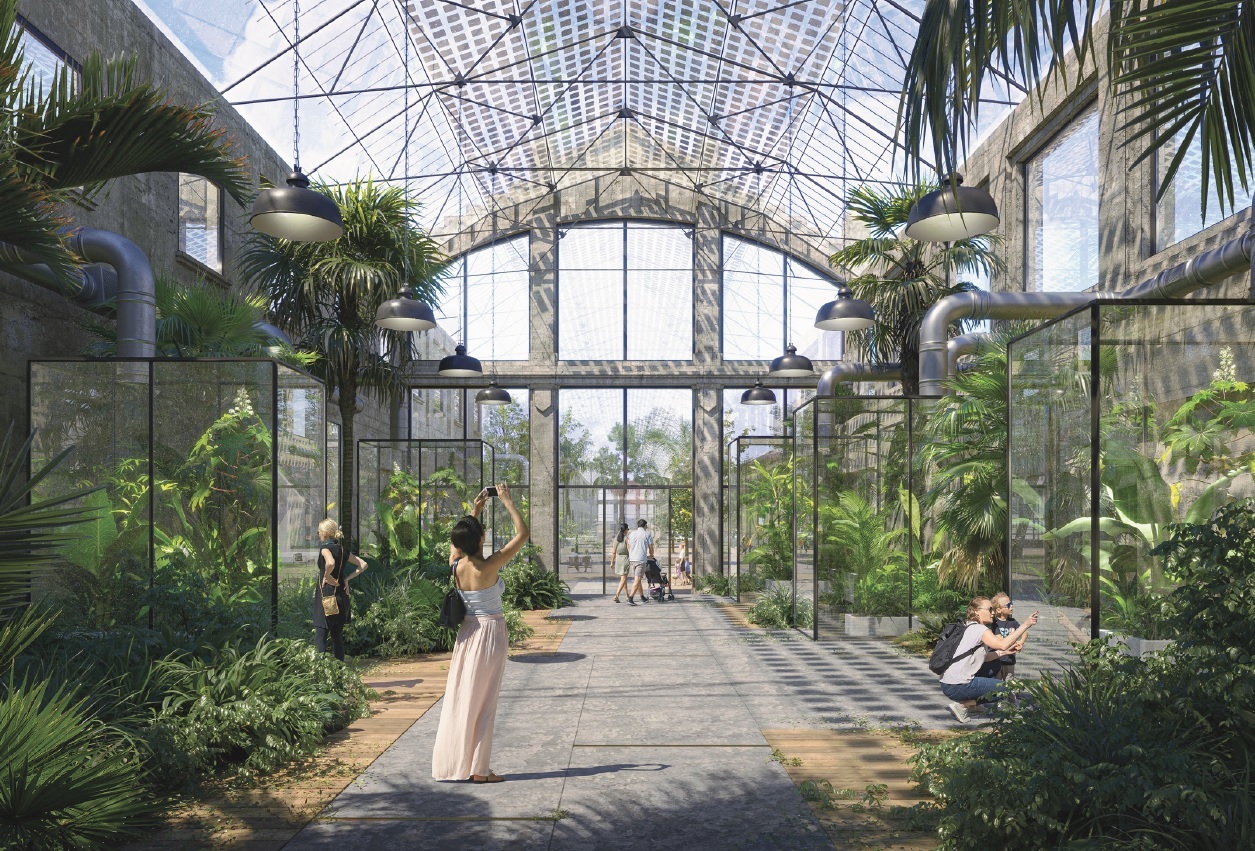
Beyond the pandemic: Looking to build on a successful diversification strategy at our Milan studio
As the world begins the process of emerging from the COVID-19 pandemic, we will be taking a look at how Chapman Taylor’s international studios are responding to changed outlooks, changed market requirements and changed approaches to how we work as they adjust to the “new normal”. Next to be profiled in the series is our Milan studio; below, Director Gianfranco Lizzul explains how the studio coped with the COVID-19 crisis which hit northern Italy particularly badly in spring 2020, the eagerness of the team to return to studio-based working and the long-term diversification strategy which has put the studio in a good place to compete effectively in the Italian market in the coming years.
Missing the studio environment
The COVID-19 pandemic affected the Lombardy region, within which Milan sits, very badly in early 2020; A spiraling number of infections and deaths in February and March led to a total lockdown, during which people could not leave their homes (and which meant that I was forced to stay in the UK until June). Luckily, there were no cases of COVID-19 among our studio team throughout this whole period.
The transition to home working was relatively unproblematic. We were able to negotiate, design and complete the concept for a major mixed-use urban regeneration masterplan project for a former car factory site near Milan entirely over Microsoft Teams, even continuing our collaboration with the client over Teams after we eventually returned to the studio because the client kept its offices closed until December.
When our studio team members had the chance to return to the studio in late June 2020, everyone came back as soon as they could – people were just glad to return to some semblance of normality after a period of psychological strain. Our studio space is quite large, which allowed us to implement social distancing protocols without any problem.
We believe that working within a studio environment is vital for the early stages of projects, particularly for the process of idea generation and collaboration, so it was a relief to be back. Although there was a second spike in COVID cases in autumn 2020, we remained at the studio and have been there ever since.
Reaping the benefits of our long-term diversification strategy
Years before the COVID-19 pandemic, we were well aware of a major shift in emphasis within the retail sector, which had formed a large proportion of our work in our earlier years; demand for new-build shopping centre designs had significantly reduced over the previous years, and the pandemic led to a couple of major shopping centre projects we had been working on being halted. We do not anticipate any more large-scale, retail-dominated projects starting.
Having anticipated the structural changes within retail several years in advance, we had diversified successfully into new sectors, which has since provided us with a steady stream of interesting projects. Nearly all of the enquiries we have received in recent times relate to projects such as hotels, resorts, offices, education/R&D developments, marinas, residential projects and mixed-use schemes, with only one being retail-related (the repurposing and refurbishment of an existing shopping centre in Rome).
Our current projects
Since the start of the pandemic, the studio has been working on a great range of projects. In the hospitality sector, for example, construction is soon to begin on the Zagreb East Gate Hotel, a 4-Star conference hotel we designed for business travelers to the Croatian capital. Our design for the luxury Breeze Residential Tower in the Italian harbour town of Jesolo, near Venice, is at building permission stage, after which we will act as delivery architects on the scheme. We are also currently working on early-stage designs for three luxury marina projects.
We have been working in collaboration with fellow Milanese architects on designs for a ski resort at Livigno in northern Italy, near the Swiss border, which will be used during the 2026 Winter Olympics. The project involves the renovation of two hotels and the design of two new ones as well as chalet accommodation for athletes. We are also hoping to commence soon creating a concept for a ski resort in Georgia.
We have also been working on the design of a 40-floor mixed-use tower in Pristina, Kosovo, one of the tallest buildings in the Balkans region, for which building permission is now being obtained and the site operation commenced. The tower will mostly provide hotel space, with retail, office and leisure options at the lower floors to activate the street level.
In the residential sector, we designed a luxury residential villa near Saint-Tropez, with the interiors conceived in a Provençal style. This project led directly to another luxury villa project in Romania, which is more contemporary in style. We are shortly to design a complex of 75 luxury villas in the Istria region of Croatia.
In addition, we are collaborating with our colleagues at Chapman Taylor’s Bristol studio on designs for short-term-let apartments in central Milan, with Bristol focusing on the concept, and us on the later stages. We are also at the feasibility stage for a residential project in Florence. Projects such as these are helping to establish our reputation in the residential sector, and we anticipate more work being generated in the coming months.
A key project for us is Aria, a major new mixed-use neighbourhood which will form part of the urban regeneration of Milan’s Ex Macello district. We were part of an international design team which won a competition to design the regeneration of the district. The Aria urban design project will create one of the most important social housing projects in Europe, and Chapman Taylor is part of a collaborative project to design and refurbish a former industrial complex of 6,500m2 in area, including retained historic buildings such as old tunnels, hangars, warehouses and factories.
The site will be home to the new European Institute of Design (IED), with the 30,000m2 campus offering capacity for 4,500 students, plus a student residence for 600 people placed within the retained former slaughterhouse heritage building on the site. This project marks a strategically important step-change for our studio; although we are a Milan studio, our major projects have traditionally been elsewhere, so we see Aria as a great introduction to the Milanese market.
The vision for the future
Our diversification drive has been successful, but we want to go further and establish Chapman Taylor as a stronger presence in the Italian office, residential, marina, mixed-use and hospitality sectors.
One strategy for achieving that has been to create a very good portfolio of projects in those sectors outside Italy, such as hotels, residences and resorts in Croatia, for example. We believe that the studio can thrive in these sectors, and we are building a good reputation in Italy in that regard, but we want to make Chapman Taylor an automatic go-to name for potential clients.
The fact that we are part of, and able to draw upon the expertise of a large international network of Chapman Taylor studios is a great selling point for us. Our clients appreciate the fact that we offer local knowledge, in Italy and in South East Europe, but also draw upon the resources of a global company. We are looking to grow our studio and are now recruiting for senior Revit-experienced architects to lead new projects – our Revit expertise is a major bonus for clients and helps us win new work regularly.
Responsible design is a major part of our agenda; we are talking to some of our clients about how we can make their projects environmentally, socially and economically sustainable. The highest levels of environmental sustainability are increasingly a prerequisite for our clients, and we have the design tools and experience to help them achieve that goal.
I will be retiring in 2023, so we have had a succession plan in place for some time, promoting the best younger talents and trying to ensure that there will be a seamless transition to new leadership of the business. The team is creative, talented and experienced, with a good range of complementary skill sets, which will help to ensure that the studio will continue to grow and evolve successfully under my successors.
"Aria" a major new mixed-use neighbourhood which will form part of the urban regeneration of Milan’s Ex Macello district
Missing the studio environment
The COVID-19 pandemic affected the Lombardy region, within which Milan sits, very badly in early 2020; A spiraling number of infections and deaths in February and March led to a total lockdown, during which people could not leave their homes (and which meant that I was forced to stay in the UK until June). Luckily, there were no cases of COVID-19 among our studio team throughout this whole period.
The transition to home working was relatively unproblematic. We were able to negotiate, design and complete the concept for a major mixed-use urban regeneration masterplan project for a former car factory site near Milan entirely over Microsoft Teams, even continuing our collaboration with the client over Teams after we eventually returned to the studio because the client kept its offices closed until December.
When our studio team members had the chance to return to the studio in late June 2020, everyone came back as soon as they could – people were just glad to return to some semblance of normality after a period of psychological strain. Our studio space is quite large, which allowed us to implement social distancing protocols without any problem.
We believe that working within a studio environment is vital for the early stages of projects, particularly for the process of idea generation and collaboration, so it was a relief to be back. Although there was a second spike in COVID cases in autumn 2020, we remained at the studio and have been there ever since.
Reaping the benefits of our long-term diversification strategy
Years before the COVID-19 pandemic, we were well aware of a major shift in emphasis within the retail sector, which had formed a large proportion of our work in our earlier years; demand for new-build shopping centre designs had significantly reduced over the previous years, and the pandemic led to a couple of major shopping centre projects we had been working on being halted. We do not anticipate any more large-scale, retail-dominated projects starting.
Having anticipated the structural changes within retail several years in advance, we had diversified successfully into new sectors, which has since provided us with a steady stream of interesting projects. Nearly all of the enquiries we have received in recent times relate to projects such as hotels, resorts, offices, education/R&D developments, marinas, residential projects and mixed-use schemes, with only one being retail-related (the repurposing and refurbishment of an existing shopping centre in Rome).
Our current projects
Since the start of the pandemic, the studio has been working on a great range of projects. In the hospitality sector, for example, construction is soon to begin on the Zagreb East Gate Hotel, a 4-Star conference hotel we designed for business travelers to the Croatian capital. Our design for the luxury Breeze Residential Tower in the Italian harbour town of Jesolo, near Venice, is at building permission stage, after which we will act as delivery architects on the scheme. We are also currently working on early-stage designs for three luxury marina projects.
We have been working in collaboration with fellow Milanese architects on designs for a ski resort at Livigno in northern Italy, near the Swiss border, which will be used during the 2026 Winter Olympics. The project involves the renovation of two hotels and the design of two new ones as well as chalet accommodation for athletes. We are also hoping to commence soon creating a concept for a ski resort in Georgia.
We have also been working on the design of a 40-floor mixed-use tower in Pristina, Kosovo, one of the tallest buildings in the Balkans region, for which building permission is now being obtained and the site operation commenced. The tower will mostly provide hotel space, with retail, office and leisure options at the lower floors to activate the street level.
In the residential sector, we designed a luxury residential villa near Saint-Tropez, with the interiors conceived in a Provençal style. This project led directly to another luxury villa project in Romania, which is more contemporary in style. We are shortly to design a complex of 75 luxury villas in the Istria region of Croatia.
In addition, we are collaborating with our colleagues at Chapman Taylor’s Bristol studio on designs for short-term-let apartments in central Milan, with Bristol focusing on the concept, and us on the later stages. We are also at the feasibility stage for a residential project in Florence. Projects such as these are helping to establish our reputation in the residential sector, and we anticipate more work being generated in the coming months.
A key project for us is Aria, a major new mixed-use neighbourhood which will form part of the urban regeneration of Milan’s Ex Macello district. We were part of an international design team which won a competition to design the regeneration of the district. The Aria urban design project will create one of the most important social housing projects in Europe, and Chapman Taylor is part of a collaborative project to design and refurbish a former industrial complex of 6,500m2 in area, including retained historic buildings such as old tunnels, hangars, warehouses and factories.
The site will be home to the new European Institute of Design (IED), with the 30,000m2 campus offering capacity for 4,500 students, plus a student residence for 600 people placed within the retained former slaughterhouse heritage building on the site. This project marks a strategically important step-change for our studio; although we are a Milan studio, our major projects have traditionally been elsewhere, so we see Aria as a great introduction to the Milanese market.
The vision for the future
Our diversification drive has been successful, but we want to go further and establish Chapman Taylor as a stronger presence in the Italian office, residential, marina, mixed-use and hospitality sectors.
One strategy for achieving that has been to create a very good portfolio of projects in those sectors outside Italy, such as hotels, residences and resorts in Croatia, for example. We believe that the studio can thrive in these sectors, and we are building a good reputation in Italy in that regard, but we want to make Chapman Taylor an automatic go-to name for potential clients.
The fact that we are part of, and able to draw upon the expertise of a large international network of Chapman Taylor studios is a great selling point for us. Our clients appreciate the fact that we offer local knowledge, in Italy and in South East Europe, but also draw upon the resources of a global company. We are looking to grow our studio and are now recruiting for senior Revit-experienced architects to lead new projects – our Revit expertise is a major bonus for clients and helps us win new work regularly.
Responsible design is a major part of our agenda; we are talking to some of our clients about how we can make their projects environmentally, socially and economically sustainable. The highest levels of environmental sustainability are increasingly a prerequisite for our clients, and we have the design tools and experience to help them achieve that goal.
I will be retiring in 2023, so we have had a succession plan in place for some time, promoting the best younger talents and trying to ensure that there will be a seamless transition to new leadership of the business. The team is creative, talented and experienced, with a good range of complementary skill sets, which will help to ensure that the studio will continue to grow and evolve successfully under my successors.
The vision for the future
Our diversification drive has been successful, but we want to go further and establish Chapman Taylor as a stronger presence in the Italian office, residential, marina, mixed-use and hospitality sectors.
One strategy for achieving that has been to create a very good portfolio of projects in those sectors outside Italy, such as hotels, residences and resorts in Croatia, for example. We believe that the studio can thrive in these sectors, and we are building a good reputation in Italy in that regard, but we want to make Chapman Taylor an automatic go-to name for potential clients.
The fact that we are part of, and able to draw upon the expertise of a large international network of Chapman Taylor studios is a great selling point for us. Our clients appreciate the fact that we offer local knowledge, in Italy and in South East Europe, but also draw upon the resources of a global company. We are looking to grow our studio and are now recruiting for senior Revit-experienced architects to lead new projects – our Revit expertise is a major bonus for clients and helps us win new work regularly.
Responsible design is a major part of our agenda; we are talking to some of our clients about how we can make their projects environmentally, socially and economically sustainable. The highest levels of environmental sustainability are increasingly a prerequisite for our clients, and we have the design tools and experience to help them achieve that goal.
I will be retiring in 2023, so we have had a succession plan in place for some time, promoting the best younger talents and trying to ensure that there will be a seamless transition to new leadership of the business. The team is creative, talented and experienced, with a good range of complementary skill sets, which will help to ensure that the studio will continue to grow and evolve successfully.
